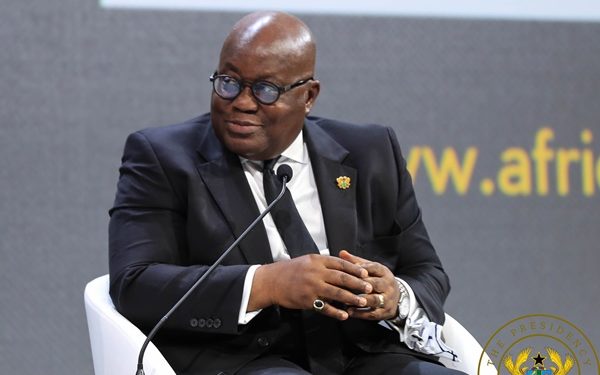Ghana unveils ambitious $550 billion plan for net-zero targets by 2060
President Akufo-Addo has underscored the nation’s ambitious pursuit of climate goals, revealing the need for a substantial financial injection to the tune of $550 billion into its National Energy Transition framework over the next four decades.
The country’s commitment to energy transition as outlined by the President at the 7th Ghana Energy Awards, aims to position the country as a pioneer in achieving universal access to clean and modern energy by 2030.
The National Energy Transition framework has been meticulously devised to guide Ghana’s trajectory toward net-zero energy-related carbon emissions by 2060. The framework strategically addresses major economic sectors, including oil and gas, transportation, agriculture, and power.
President Akufo-Addo acknowledged the audacity of these targets, signaling the government’s unwavering commitment despite the considerable financial burden, equivalent to 10% of the annual GDP. He cautioned against the potentially greater economic toll of neglecting pollution mitigation efforts, emphasizing the cost-effectiveness of proactive measures.
“This national framework is ambitious but attainable. It is anticipated that some $550 United States dollars will have to be raised over the next 40 years. This is equivalent to some 10% of our annual GDP,” he stated.
The financial commitment, while sizable, underscores Ghana’s recognition of the long-term socio-economic benefits tied to the implementation of the National Energy Transition framework. The envisioned advantages span heightened energy security, a diversified energy mix, job creation, improved public health, poverty eradication, and the preservation of natural resources.
“This may appear huge, but yet, it is less than what will be spent if we carry on unconcerned. The framework will have long term advantages for our economy, society and environment. It will increase our energy security, diversify our energy mix, create jobs, boost health and to eradicate poverty and safeguard our natural resource,” he added.
In framing the discourse with economic pragmatism, President Akufo-Addo’s vision aligns with global imperatives to address climate change, positioning Ghana on a trajectory that balances environmental sustainability with economic viability.









